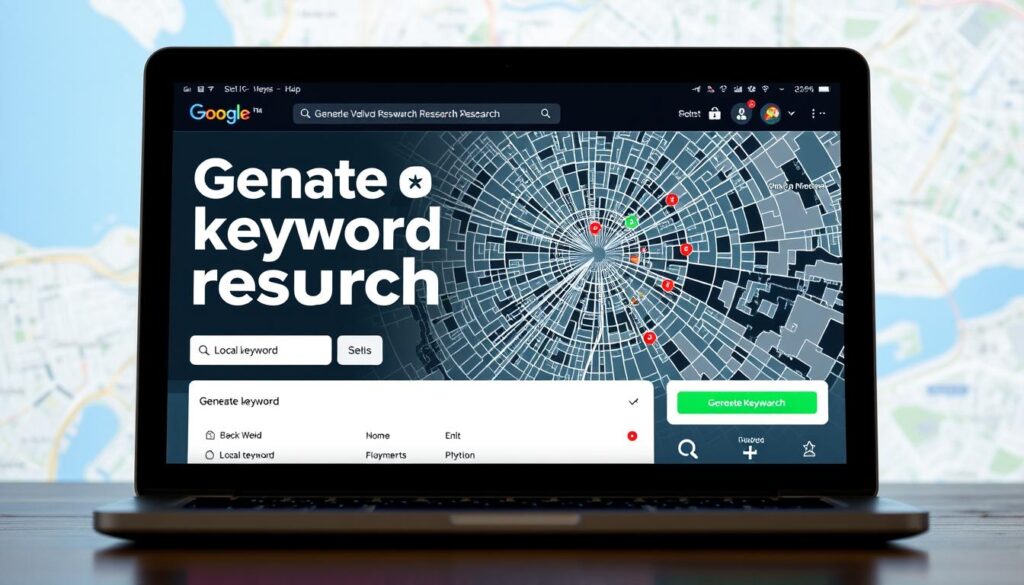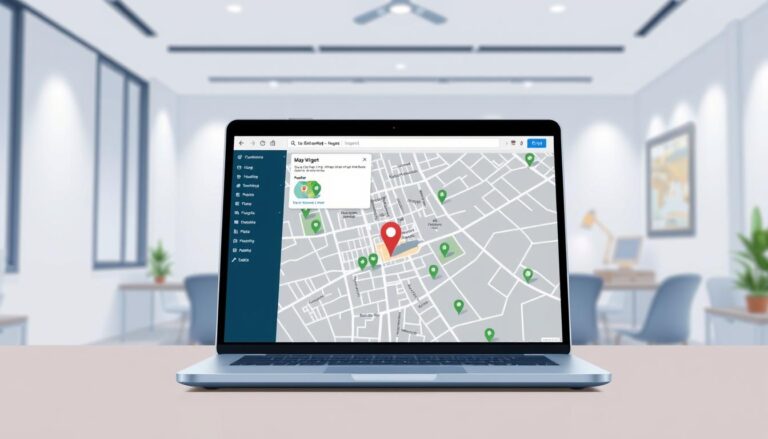As a small business owner, having an online presence is crucial for attracting nearby customers. In today’s digital landscape, local SEO plays a vital role in ensuring your business is visible to those searching for products or services like yours in your area.
I will guide you through the process of implementing effective SEO strategies tailored to your business needs, enhancing your visibility in local search results. By optimizing your online presence for local search, you can significantly increase your chances of being discovered by potential customers actively looking for what you offer.
Key Takeaways
- Understand the importance of local SEO for your small business.
- Learn how to optimize your website for local search.
- Discover the role of online presence in attracting local customers.
- Gain insights into effective SEO strategies for small businesses.
- Improve your local search rankings with actionable tips.
Understanding Local SEO and Its Importance
Understanding the nuances of local SEO can significantly impact how effectively your business reaches local customers. Local SEO is a specialized search engine optimization strategy that helps businesses appear in location-based searches.
What Is Local SEO?
Local SEO is a method to make your local business more visible in search results on Google. It’s about structuring your website to rank better in search engines and get more visitors. By optimizing for local SEO, you can find new customers and bring them to your business.
How Local SEO Differs from Traditional SEO
Local SEO and traditional SEO differ primarily in their ranking factors. Local SEO is influenced by online reviews, geo-location keywords, and Google Business Profile. In contrast, traditional SEO focuses on quality content, backlinks, and technical SEO. Understanding these differences is key to developing an effective SEO strategy for your local business.

Why Small Businesses Need Local SEO
With the rise of mobile searches, local SEO has become a vital component of any small business’s marketing strategy. As people increasingly use their smartphones to find local businesses, having a robust local SEO strategy is crucial for attracting customers.
The Growing Importance of Local Search
The way people search for products and services is changing, with a significant shift towards local search. This trend is driven by the increased use of smartphones and advanced voice search capabilities. As a result, businesses must adapt to these changes to remain visible.
Statistics That Prove Local SEO’s Value
Compelling statistics demonstrate the value of local SEO for small businesses. For instance, 46% of Google searches have local intent, and 88% of consumers who conduct a local search on their smartphone visit a related store within 24 hours. Moreover, “near me” mobile searches increased by 136% last year, representing a massive opportunity for businesses with physical locations. Effective local SEO can drive significant traffic and deliver exceptional ROI, with 40% of local SEO campaigns generating returns of 500% or more.

Local SEO Ranking Factors You Need to Know
The success of your local SEO strategy hinges on understanding the ranking factors that Google prioritizes. To improve your local search visibility, it’s crucial to grasp how Google ranks businesses in local search results.
Google Business Profile: Proximity, Relevance, and Prominence
Google prioritizes Proximity, Relevance, and Prominence as Local Map Pack ranking factors, all of which can be addressed in your Google Business Profile (GBP). Proximity refers to how close your business is to the searcher’s location. Relevance indicates how well your business matches the search query, emphasizing the need for an accurate GBP that reflects your business offerings. Prominence reflects how well-known and trusted your business is.
On-Page SEO Signals
On-page SEO signals significantly impact local rankings. Factors such as proper keyword usage, high-quality content, and a mobile-friendly website are crucial. Ensuring your website is optimized for these elements can improve your local search visibility.
Review Signals
Review signals, including the quantity, recency, and sentiment of reviews, directly affect your local search rankings. Positive reviews not only enhance your business’s reputation but also boost your visibility in local search results.
Setting Up and Optimizing Your Google Business Profile
To dominate local search results, you need to start with a well-optimized Google Business Profile. This process involves creating, verifying, and optimizing your profile to ensure it accurately represents your business and appeals to potential customers.

Creating Your Profile
To begin, you’ll need to create a Google Business Profile, which involves setting up a Google account for your business. Fill in as much information as possible to create a comprehensive profile.
Verifying Your Business
Verification is a crucial five-step process that can be completed via Google’s website using either a computer or smartphone. This step is essential to claim and verify your business listing, preventing unauthorized changes and establishing ownership.
Optimizing Your Listing Information
Optimizing your Google Business Profile involves providing detailed and accurate information, including your business name, category selection, address, phone number, website URL, and business hours. Enhance your profile with high-quality photos, videos, and a compelling business description to attract potential customers. Leverage special features like products, services, posts, and Q&A sections to make your profile stand out.
By following these steps, you can create a robust Google Business Profile that enhances your local SEO and attracts more customers.
Managing Online Reviews for Better Local Rankings
Online reviews are a vital component of local SEO, affecting how businesses rank in local search results. The second most important ranking factor for the Local Map Pack is online reviews, making them crucial for businesses aiming to enhance their local online presence.
How to Generate More Positive Reviews
To improve local SEO rankings, generating more positive reviews is essential. Businesses should focus on encouraging satisfied customers to leave 4 and 5-star reviews. This can be achieved by providing excellent service and directly asking happy customers for feedback. It’s also important to make the review process as simple as possible by providing direct links to review platforms.
Responding to Reviews (Both Positive and Negative)
Responding to both positive and negative reviews is crucial. For positive reviews, a simple “thank you” can go a long way in building customer loyalty. For negative reviews, responding promptly and offering a solution can turn a negative experience into a positive one, demonstrating to search engines and people that the business is committed to customer satisfaction.
Local SEO Strategies for Small Businesses That Drive Results
For small businesses, local SEO is a vital component of a successful online strategy. To succeed online, it’s crucial to implement effective local SEO strategies that drive measurable results.
Creating a Mobile-Friendly Website
A mobile-friendly website is no longer optional; it’s essential. With Google’s mobile-first indexing, your website’s mobile version will be crawled and indexed first. Ensure your website is optimized across all devices, providing a seamless user experience.
Optimizing for Voice Search
With 20% of Google searches conducted on mobile devices through voice search, optimizing for voice search is increasingly important. Incorporate questions into your content headers to gain visibility and signal high importance to search engines.
Building Local Citations
Building consistent local citations across directories, data aggregators, and industry-specific platforms is crucial. This helps improve your business’s online visibility and credibility, driving more local search results.
Key Takeaways:
- Ensure your website is mobile-friendly to improve user experience and search rankings.
- Optimize your content for voice search to stay ahead of the competition.
- Build consistent local citations to boost your online credibility.
By implementing these local SEO strategies, small businesses can drive measurable results and improve their online presence.
Local Keyword Research and Implementation

Local keyword research bridges the gap between your business and potential customers searching online. It’s about understanding the terms your audience uses to find services or products like yours.
Finding the Right Local Keywords
To find the right local keywords, you need to understand the intent behind the search. Tools like Semrush or Google Keyword Planner can help identify relevant keywords. You can also analyze competitors’ strategies to discover opportunities.
Key steps include: identifying “near me” and location-specific keywords, understanding the difference between transactional and informational keywords, and using tools to analyze keyword intent.
Where to Place Local Keywords on Your Website
Once you’ve identified your local keywords, it’s crucial to place them strategically on your website. This includes optimizing title tags, meta descriptions, headers, and the content body. Ensuring your keywords are naturally integrated will improve your site’s visibility in local search results.
Strategic placement involves using keywords in your URL structure and ensuring they are relevant to the content on each page.
Creating Location-Specific Content
Developing content that is specific to a business’s location is a key strategy for improving local SEO and engaging with the local community. This approach helps businesses connect with their audience by addressing local needs, interests, and questions.
Location Pages for Multiple Business Locations
For businesses with multiple locations, creating dedicated location pages is essential. These pages should include unique details about each location, such as NAP information (name, address, and phone number), directions, and images of the storefront and interior. This helps search engines determine the most relevant location for geo-targeted search queries.
Local Blog Content Ideas
To further enhance local SEO, businesses can develop blog content that resonates with their local audience. Ideas include writing about local events, news, and landmarks. By incorporating local keywords and community information, businesses can demonstrate their local relevance and attract more local customers.
Technical SEO Considerations for Local Businesses
For local businesses, having a technically sound website is crucial for search engine ranking and user experience. Technical SEO is not just about following best practices; it’s about creating a solid foundation for your online presence.
Site Speed Optimization
Site speed is a critical factor in both user experience and SEO. A slow-loading website can lead to high bounce rates and negatively impact your local search rankings. To improve site speed, optimize images, leverage browser caching, and minimize CSS and JavaScript files. Regularly monitoring your site’s speed using tools like Google PageSpeed Insights can help identify areas for improvement.
Mobile Responsiveness
With the majority of local searches conducted on mobile devices, ensuring your website is mobile-responsive is vital. A mobile-friendly design adapts to different screen sizes, providing an excellent user experience across all devices. This not only enhances user engagement but also contributes to better SEO performance. Test your website’s mobile responsiveness using Google’s Mobile-Friendly Test tool.
By focusing on technical SEO considerations such as site speed optimization and mobile responsiveness, local businesses can improve their online visibility and attract more customers.
Local Link Building Strategies

As a business owner, leveraging local link building can be a game-changer for your SEO efforts. Local link building is one of the most powerful ways to improve your business’s prominence factor and boost your local search rankings. By engaging with your community off your website, you can build relationships and enhance your reputation.
Local link building involves identifying and pursuing opportunities through community involvement, sponsorships, and partnerships with complementary businesses. This can include getting featured in local publications and industry directories, which provide valuable local backlinks.
Partnering with Local Businesses
Partnering with other local businesses can significantly enhance your link building efforts. By collaborating on projects or events, you can create opportunities for natural link building. For instance, you can co-sponsor a local charity event or participate in a joint marketing initiative.
Getting Featured in Local Publications
Getting featured in local publications is another effective strategy for building high-quality local links. To achieve this, you can pitch stories or articles to local newspapers, magazines, or online blogs. Ensure that your content is relevant, informative, and adds value to the local community.
Optimizing Your Website’s NAP Information
Accurate NAP information is the foundation upon which your business’s online visibility is built. Inaccurate or inconsistent Name, Address, and Phone number details can lead to confusion among potential customers and search engines alike, ultimately harming your local SEO efforts.
To optimize your website’s NAP information, it’s essential to display it prominently and consistently across your site, particularly in the header or footer where it’s easily accessible. Using schema markup on your NAP details helps search engines understand and correctly interpret this critical data, enhancing your local search visibility.
Maintaining Consistent NAP Across All Platforms
Consistency is key when it comes to NAP information. Auditing your existing NAP across the web to identify and correct inconsistencies is a crucial step. This involves checking your business listings on various directories, data aggregators, and platforms to ensure uniformity.
- Verify your business’s NAP information on its website and other online platforms.
- Use tools and services designed to monitor and maintain NAP consistency across hundreds of directories.
- Handle changes such as business moves, phone number changes, or name changes with careful consideration to minimize negative impacts on local search visibility.
By maintaining consistent NAP information and optimizing its display on your website, you can significantly improve your local SEO standing and attract more customers.
Local SEO Tools Worth Investing In

Investing in the best local SEO tools is essential for small businesses aiming to enhance their online presence. These tools can help streamline your efforts and provide actionable insights to improve your local search performance.
Free Local SEO Tools
Essential free tools include Google Search Console, Google Analytics, and Google’s Business Profile Manager. These tools help you monitor your website’s performance, understand your audience, and manage your business listing effectively.
Paid Local SEO Tools
Paid tools like BrightLocal, Moz Local, and Semrush’s local SEO features offer advanced functionalities such as local citation building, review management, and local rank tracking. These tools can save you time and improve your results, making them worth considering for your business.
Measuring Your Local SEO Success
Measuring local SEO success is vital for identifying areas of improvement and optimizing your strategy. To achieve this, you need to track key metrics that provide insights into your local search performance.
Key Metrics to Track
To gauge your local SEO performance, focus on the following metrics:
- Local pack rankings: Monitor your position in the local pack to understand your visibility.
- Organic rankings for local keywords: Track your rankings for relevant keywords to see how your SEO efforts are paying off.
- Google Business Profile insights: Analyze data from your Google Business Profile to understand how customers interact with your listing.
- Website traffic from local searches: Use analytics tools to track traffic from local searches and understand its impact on your business.
Using Google Analytics for Local SEO
Google Analytics is a powerful tool for analyzing your local SEO performance. To get the most out of it, segment your data to focus on local traffic and set up goals to track conversions from local search visitors. This will help you understand the effectiveness of your local SEO efforts and make data-driven decisions.
Common Local SEO Mistakes to Avoid
As a business owner, you’re likely aware of the importance of local SEO, but are you making mistakes that could be hurting your online visibility? Even small errors can add up and negatively impact your search rankings. In this section, we’ll explore the most common local SEO mistakes and provide actionable advice on how to avoid them.
Inconsistent Business Information
One of the biggest local SEO killers is inconsistent business information across the web. Accuracy is crucial when it comes to your business’s name, address, and phone number (NAP). A single mistake can lead to a loss of credibility and lower search rankings. Make sure to update your information regularly, including holiday hours and other important details.
Ignoring Negative Reviews
Ignoring negative reviews can be detrimental to your business’s online reputation. Responding to negative feedback shows that you value your customers’ opinions and care about their experiences. Not only can this turn a negative into a positive, but it also demonstrates to search engines that you’re actively engaged with your customers. Ask your customers to leave reviews on multiple platforms, including Google Business Profile and other local directories.
Advanced Local SEO Tactics for Competitive Markets
In highly competitive markets, leveraging sophisticated local SEO tactics is crucial. To stand out, businesses need to go beyond basic strategies and adopt advanced techniques that can significantly improve their local search rankings.
Local Schema Markup
Implementing local schema markup is a powerful way to provide search engines with structured data about your business. This can potentially earn you enhanced search results, such as rich snippets, which can increase click-through rates. By adding schema markup to your website, you can highlight important information like your business hours, address, and reviews.
Geo-Targeted Landing Pages
Creating geo-targeted landing pages can help you rank for searches in specific neighborhoods or surrounding areas. This strategy involves crafting content that is relevant to a particular geographic location without duplicating content. By doing so, you can attract local customers who are searching for products or services in their area. This approach can be particularly effective for businesses with multiple locations or those serving different regions.
Conclusion: Taking Your Local SEO to the Next Level
As we conclude this guide, remember that local SEO is not a one-time task but an ongoing process that requires consistent effort and adaptation to algorithm updates. To stay ahead, it’s essential to implement the key strategies we’ve covered, including optimizing your Google Business Profile, managing online reviews, and creating location-specific content.
By prioritizing these tasks based on your business needs and competitive landscape, you’ll be well on your way to improving your local search visibility. It’s also crucial to integrate your local SEO efforts with your broader marketing strategy, including social media, email marketing, and paid advertising, to maximize your reach and impact.
Staying informed about the latest SEO trends and best practices will help you maintain a competitive edge. With consistent effort over time, you’ll be able to connect with more local customers and grow your business. Remember, SEO is a marathon, not a sprint – keep learning, experimenting, and adapting to achieve long-term success.










